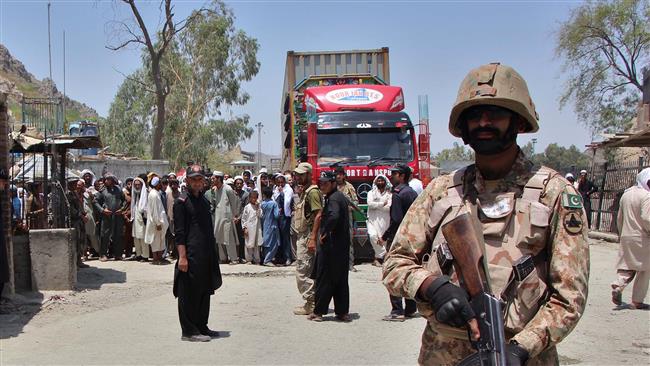
For decades, the largely porous border between Pakistan and Afghanistan—and the somewhat porous border between Pakistan and Iran—was not viewed by Islamabad or Rawalpindi as a problem. Now, however, after over three decades since the Soviet invasion of Afghanistan, two decades since the Taliban’s takeover of Afghanistan, and over 15 years since the end of Taliban rule, Islamabad is actively seeking to put an end to this arrangement. Among other actions, Islamabad now demands a thorough documentation of all Afghans that enter Pakistan via the Torkham crossing.
Developments currently unfolding along the Pakistan-Afghanistan border suggest that Islamabad’s Kabul policy is likely being driven by the former’s apprehensions regarding the latter’s increased capabilities. If indeed true, this would be a serious shift in the dynamics of the bilateral relationship itself, since so far, Pakistan has designed and implemented policies like an entity that knew it had an upper hand.
Recent Developments
Pakistan’s wish to make border management a more organized exercise is not new. In fact, there have been incremental efforts towards that goal over the past couple of years. However, the urgency demonstrated in the rhetoric and actions towards achieving that goal over the past few weeks is new and telling.
Over the last few months, the border crossing between Pakistan and Afghanistan at Torkham has been at the center of a raging storm between the two countries. In May, Pakistan decided to close this crossing, ceasing to admit Afghans without relevant documentation to cross over into Pakistani territory. Islamabad eventually opened the gate for transit, but the border closure and subsequent cross-border firing have soured bilateral relations severely. Islamabad’s reasoning is that it seeks to prevent insurgents entering through Afghanistan and carrying out terror activities in Pakistani territory, particularly after the increased spate of attacks in the country.
Furthermore, in June, Pakistan began constructing a gate at Taftan in Balochistan, on its border with Iran, stating that it was intended to help curb illegal trade and to address security lapses. The gate is scheduled to be inaugurated on August 14. Iran has a similar gate not too far from Taftan, in the Mir Jawe area in its Sistan and Baluchestan province, for some time now. However, there have been some instances of that gate being shut by Iranian authorities for different reasons. It appears that in addition to purposes such as better (or proportionate) control of traffic, Pakistan is seeking to filter entrants to its territory in a more thorough fashion than before.
Some Questions
Of the 235 border crossings between Pakistan and Afghanistan, immigration procedures are carried out only at Chaman and Torkham. Experts, in interviews to this author, have suggested that infrastructure and human resource capacity required to process the documentation of every single individual crossing over at all these spots does not exist at the moment. It is silly to argue that insurgents entering Pakistan via Afghanistan would choose these two entries when they can cross at any of the other 233. Is Islamabad conducting itself in this fashion simply to rake up tensions with Afghanistan, with the objective of pressurizing Kabul? In part, yes. However, it appears that there might be an additional motivation for Pakistan’s impatience in the recent weeks.
Chances of a Change in Assessment
Before and even as all this unfolded, several Afghans were reportedly found possessing fake Computerized National Identity Cards (CNICs) issued by Pakistan’s National Database and Registration Authority (NADRA). It has been reported that this had been done via bribing NADRA officials, who were subsequently arrested. Some other Afghan nationals too have been arrested by Pakistan, and it is alleged that they were conducting espionage. Incidentally, former Afghan Taliban Chief Mullah Mansour too was found to be in the possession of a valid Pakistani passport where his name was listed as Wali Muhammad and which showed him as a registered voter in the Chaman Municipal Corporation. He had travelled to Iran using that passport and an Iranian visa. He was returning from Iran via Taftan when a U.S. drone struck his car.
Today, Islamabad finds itself conducting a cost-benefit analysis of the continued existence of these porous borders. Cross-border access for undocumented individuals between Afghanistan and Pakistan, which was once considered beneficial, is now being viewed as a threat to national security and national security interests. Chances are that Pakistan’s Inter-Services Intelligence now considers the possibility of infiltration by Afghanistan’s intelligence agency—the National Directorate of Security (NDS)—into Pakistan’s government structures and civilian life very likely. Given the ongoing deterioration in the Kabul-Islamabad bilateral relationship, it is possible that Pakistan does not want to take any chances.
Islamabad has most likely identified that the balance of power with Kabul has undergone a key transition. Afghanistan’s capabilities have increased, and as a consequence, the advantageous position Pakistan previously operated from to formulate/update its Kabul policy has relatively diminished in potential. Islamabad realizes that it might not have an upper hand as it previously did, and that it might possibly even be in a vulnerable position.
The Torkham issue and other security tightening measures that Pakistan is developing appear to have more to do with the threat Islamabad perceives from Kabul than that it perceives from non-state actors. If this is indeed the case, Pakistan may be reevaluating and reorienting its policies towards Afghanistan. Indicators for this potential shift include Pakistan’s increasingly intensifying insistence on documenting every Afghan entering Pakistan and the obvious urgency demonstrated in its demands for repatriating Afghan refugees. Such a shift in perception and policy in Islamabad would mean that in the coming days, there is a very real possibility of further deterioration of the security situation in eastern and southeastern Afghanistan, which would be caused by the actions of the Afghan Taliban and the Haqqani Network.
Views expressed in this article are the author’s own and do not necessarily reflect those of her affiliated organizations.
***
Editor’s Note: Click here to read this article in Urdu
Image: AFP, Getty



